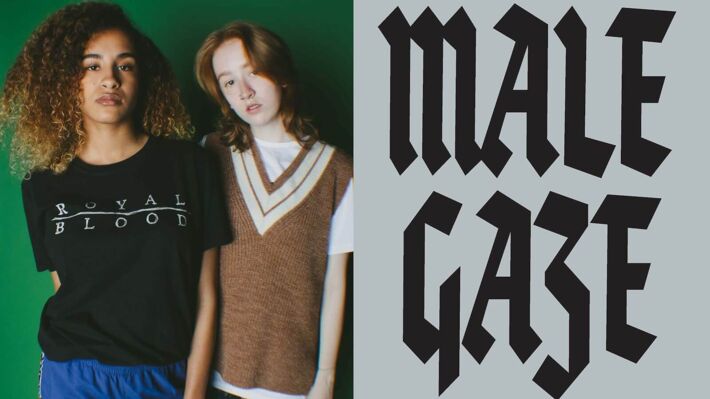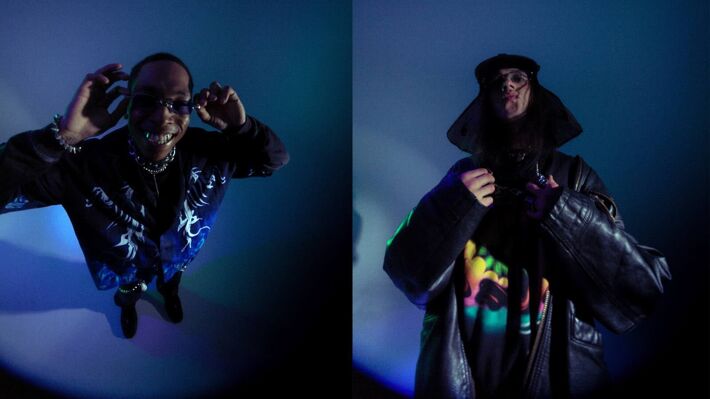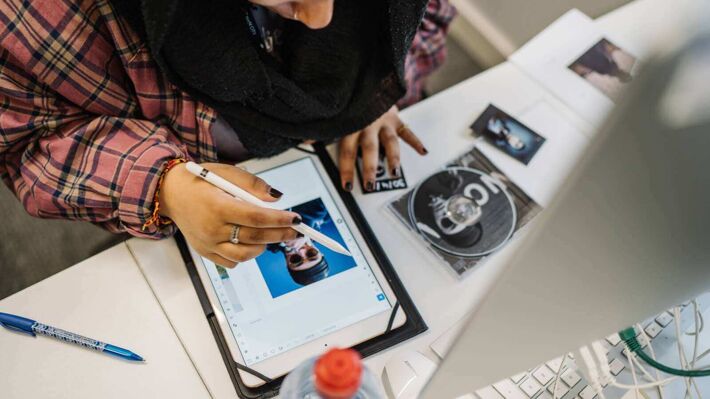Fashion Communication with a Foundation Year - BA (Hons)
Currently viewing course to start in 2026/27 Entry.
The BA (Hons) Fashion Communication is a fashion-focused visual design course. We combine art direction, styling, graphic design, film, animation, photography, journalism, events, and trend forecasting for fashion. We brand, style, write, shoot, package, and direct....
- Level Foundation
- Study mode Full Time
- Award BA (Hons)
- Start date September 2026
- Fees View course fees
- Subject
- Location City Centre
This course is:
Open to International Students
Overview
The BA (Hons) Fashion Communication is a fashion-focused visual design course. We combine art direction, styling, graphic design, film, animation, photography, journalism, events, and trend forecasting for fashion.
We brand, style, write, shoot, package, and direct. As an interdisciplinary course, we communicate to consumers in both the real world and the metaverse, driven by creative storytelling. We are not mere followers; we are pioneers, embracing a forward-thinking mindset that positions us at the forefront.
Our focus is on developing fashion communicators with exceptional craft skills, ready to influence the industry with strong future-proofing capabilities. Our students are at the cutting edge of contemporary fashion communication, working within the metaverse while maintaining a strong foundation in print design and live events, meeting the fashion industry's highest standards of visual communication.
We challenge conventions by seamlessly blending design, art direction, and promotion to convey ideas and concepts. Envision yourself art directing and orchestrating magazine covers, fashion shoots, directing fashion films, music videos and shaping brands visual identities with strategic finesse.
Rooted in our love of tradition and craft, we are equally committed to pushing the boundaries of innovation and sustainability for a better world. As global citizens, we champion principles addressing climate issues, racial equality, and social justice. We are not just fashion creators; we are advocates for positive change.
We pride ourselves at being at the core of the fashion industry and influencing its future. Our teaching team is made up of industry specialists and we have a proven track record of working with top brands and influential industry practitioners. We are an award-winning course that shapes fashion communicators that can work in teams, as individuals as well as nurturing entrepreneurs and future proofers.
In this nurturing environment, pastoral care is at the core of our ethos. We care about your growth as an individual, fostering a supportive community where your well-being matters. Our commitment extends beyond the academic, ensuring that you not only succeed in your creative pursuits but also feel valued and supported on a personal level.
What's covered in this course?
We challenge conventions by seamlessly blending design, art direction, and promotion to convey ideas and concepts. Envision yourself art directing and orchestrating magazine covers, fashion shoots, directing fashion films, music videos and shaping brands visual identities with strategic finesse.
Rooted in our love of tradition and craft, we are equally committed to pushing the boundaries of innovation and sustainability for a better world. As global citizens, we champion principles addressing climate issues, racial equality, and social justice. We are not just fashion creators; we are advocates for positive change.
We pride ourselves at being at the core of the fashion industry and influencing its future. Our teaching team is made up of industry specialists and we have a proven track record of working with top brands and influential industry practitioners. We are an award-winning course that shapes fashion communicators that can work in teams, as individuals as well as nurturing entrepreneurs and future proofers.
In this nurturing environment, pastoral care is at the core of our ethos. We care about your growth as an individual, fostering a supportive community where your well-being matters. Our commitment extends beyond the academic, ensuring that you not only succeed in your creative pursuits but also feel valued and supported on a personal level.
I'm so glad that I did the foundation course here because it is a great stepping stone before the degree level and I think I came into my first year feeling much more confident than I ever would have done if it wasn't for the foundation year. It definitely prepared me for beginning my degree course.
Lucy Ettinger, Foundation Year Student
Why Choose Us?
- The foundation year will enable you to explore all of the different degree pathways to help you choose the right course ready for the step up to degree.
- On the foundation course you will be part of a community, building your knowledge of the equipment and facilities available, getting to know staff and your fellow students through social events and our end of year exhibition.
- You'll get to work on international industry competitions, such as L’Oreal Brand Storm.
- You'll enjoy a vast archive of fashion publications dating back to the 1930s.
- You'll have the opportunity to showcase your final-year work to industry leaders at events such as Graduate Fashion Week in London and our Arts, Design and Media (ADM) Faculty degree show in Birmingham.
- You'll have the chance to visit international fashion cities such as London, Berlin, Copenhagen and New York.
Open Days
Join us for an Open Day where you'll be able to learn about this course in detail, chat to students, explore our campus and tour accommodation. Booking isn't open for the next event yet. Register your interest, and we'll let you know as soon as booking goes live.
Next Open Day: Friday 26 June
Entry Requirements
Essential requirements
80 UCAS Tariff points. Learn more about UCAS Tariff points.
If you have a qualification that is not listed, please contact us.
Fees & How to Apply
UK students
Annual and modular tuition fees shown are applicable to the first year of study. The University reserves the right to increase fees for subsequent years of study in line with increases in inflation (capped at 5%) or to reflect changes in Government funding policies or changes agreed by Parliament. View fees for continuing students.
Award: BA (Hons)
Starting: Sep 2026
- Mode
- Duration
- Fees
- Full Time
- 4 years
- £9,535 in 2026/27 ✱ Important note for this price
- Apply via UCAS
(↩Back to price) * The Government is proposing to apply an inflationary increase to regulated tuition fees for 2026/27 and the University is planning on increasing fees to that maximum level once confirmed.
International students
Annual and modular tuition fees shown are applicable to the first year of study. The University reserves the right to increase fees for subsequent years of study in line with increases in inflation (capped at 5%) or to reflect changes in Government funding policies or changes agreed by Parliament. View fees for continuing students.
Award: BA (Hons)
Starting: Sep 2026
- Mode
- Duration
- Fees
- Full Time
- 4 years
- £18,570 in 2026/27
Guidance for UK students
UK students applying for most undergraduate degree courses in the UK will need to apply through UCAS.
The Universities and Colleges Admissions Service (UCAS) is a UK organisation responsible for managing applications to university and college.
Applying through UCAS
- Register with UCAS
- Login to UCAS and complete your details
- Select your course and write a personal statement
- Get a reference
- Pay your application fee and submit your application
You are not required to submit a portfolio for this course.
Course in Depth
Foundation year
In your Foundation Year, you will gain a grounding in a variety of skills from each of our degree pathways, including blog writing, textile techniques, branding, creating garments and more. You will be able to explore the Fashion and Textiles workshops and CAD suites to pursue your individual interests.
In order to complete this course you must successfully complete all the following CORE modules (totalling 120 credits):
As part of the fashion and textiles industries it is vital that you are able to utilise visual and written communication to convey a narrative. In this module you will learn about visual communication and specifically how it applies to these industries. You will learn key transferable skills that you can utilise in your degree pathways and in your future career.
Whether you are a fashion design, textile design, fashion business and promotion or fashion branding and communication student it is important that you understand the key construction and processing skills relevant to the Fashion and Textiles industry. In this module we will show you how these key skills inform your degree pathway and future career.
Trend forecasting is a global industry developed to research and formulate predictions to inform brands and retailers on what products should be designed and sold.
This module you will focus on techniques and strategies for identifying, researching, and documenting trends, and how trend analysis can be used in professional practice. You will analyse what a trend is, exploring past, present, and future trends using a variety of sources. Researching an existing trend and communicate your findings.
This module will allow you to develop an understanding of how the world and lifestyles are changing, and how fashion and textiles respond to these changes. Through lectures and workshops, you will be introduced to a range of themes, discussion topics, exploring social and industrial changes, and their impact on society. You will develop skills and understanding of a fashion business through the set-up and development of a brand.
This module will allow you to plan, develop and deliver a project that draws on your own, personal creative strategies, it is your chance to show off a range of skills that embrace a plethora of ideas and concepts. This is an opportunity to showcase your personal design style and produce a body of work that will enhance your next steps onto your degree programme.
Year one
In order to complete this course a student must successfully complete all the following CORE modules (totalling 120 credits):
In this module you will explore the connections between the creative fashion and textile industries in the past, and how this informs present and future trends. You will be introduced to the way individuals have influenced culture, freedom of expression and experimentation, and how this pushes boundaries and explores identity.
In this module, you'll immerse yourself in the realm of art direction within the fashion publication industry, with a specific focus on the pivotal role of a graphic designer.
You will be taught the core principles of graphic design pertaining to type, image and layout and will learn how to apply these across different sections of a publication. You will produce a version of a contemporary fashion magazine that emulates the visual language of an existing publication. You will also create the written content of your magazine, adopting a style that is relevant for your publication. You will learn how to adopt a brands tone of voice and produce copy that engages a target audience. You will also explore different publishing processes by producing a publication in both digital and printed formats. By the end of this module you will have learnt about the processes involved in publishing and print that are fundamental to the field of fashion communication.
In this module you will learn the foundations of idea generation and future thinking. You will learn the processes and methodology used by creative thinkers to develop future facing ideas and concepts. You will develop a concept that is informed by wider cultural and social trends, learning how to generate ideas relevant for the future of the fashion communication industry.
This module is an exploration into the art of visual story telling. You will learn how to communicate a fashion narrative and will learn the different techniques used by visual storytellers in the creation of fashion images. You will understand how to connect location, wardrobe, casting, props, hair and makeup to support the visual communication of narrative.
In this module, your focus will be on delving into the realm of digital fashion film and experimental methods of fashion communication. Your research aims to foster an understanding of the existing metaverse landscape and its evolving significance in the realm of fashion marketing. Through exploration and guided lectures, you will also scrutinise sustainable approaches within digital art and currency. Additionally, you will examine the potential of Augmented Reality (AR), Virtual Reality (VR), and digital marketing platforms.
Core modules are guaranteed to run. Optional modules will vary from year to year and the published list is indicative only.
Year two
Year two modules build upon your knowledge and skills gained in year one, and apply this to a more external focus, including industry competitions and internships, thus allowing you to focus on your professional and career goals.
In order to complete this course you must successfully complete all the following CORE modules (totalling 100 credits):
This level 5 undergraduate module is designed to equip students with the essential skills and knowledge necessary for a successful transition into the industry work placement and beyond. The module focuses on cultivating a deep understanding of professional practices, industry expectations, and personal development strategies.
This module emphasises the importance of branding creative concepts, products, and services. It involves using both digital and physical production skills to explore brand identity. The process includes a thorough analysis of a chosen market and assessing the commercial viability of your concept through extensive research and visual exploration.
This module dives into the world of fashion filmmaking and visual storytelling, putting an emphasis on creative direction. Participants will explore various visual mediums, like still and moving images, animation, and motion graphics, honing their photography and videography skills tailored to the fashion industry. The main goal is to seamlessly integrate styling into sets or locations.
In order to complete this course a student must successfully complete at least 20 credits from the following list of OPTIONAL modules:
The purpose of the work placement module is to enable you to develop professional attributes and subject skills through experience in the work place, and to critically reflect upon your learning in that context. You will normally be expected to arrange your own placement, with support from academic staff and BCU Careers.
This module provides an opportunity for you to apply your knowledge and skills to an external, professional brief. The brief will be set by or in discussion with an external client/agency/community and could be a ‘real life’ problem to be solved, or a simulation. The resulting project should consider sustainability and address relevant UN Sustainable Development Goals as a key aspect of contemporary creative industries work. The module provides an opportunity for you to engage in a responsive, imaginative and professional manner with an aspect of your subject area, which contributes to the development of employability skills within the supportive infrastructure of the University. You will collaborate with students, and where relevant with other stakeholders, and will be supported to approach the project with curiosity, openness, critical thinking, innovation and practical and technical skills, in order to produce project outcomes and/or solutions which meet the required brief.
Creative careers can take people to a wide variety of, sometimes, unexpected destinations. Learning to see and exploit opportunities can be the key to a rewarding portfolio career making good use of your creative skills whilst earning a living from doing what you love, whether it's producing creative artefacts, performing, offering a service or consultancy. Learning to promote and ‘pitch’ those ideas to others is core to developing a successful independent, creative and entrepreneurial career. This module will build your skillset to enable you to talk confidently about you and your work. It will also help you to find or create opportunities, some may even come as a surprise to you!
Core modules are guaranteed to run. Optional modules will vary from year to year and the published list is indicative only.
Year three
In your final year you will focus on the area of the fashion industry you intend to work in. You are able to tailor your final-year projects to an area of the industry you're most interested in, and supports your career ambitions.
In order to complete this course you must successfully complete all the following CORE modules (totalling 120 credits):
This Level 6 undergraduate module is designed to further develop your research and inquiry skills within the context of the fashion and textile industry.
You will undertake a range of research methods on a topic of personal interest. You will investigate and critically analyse the findings. You will be applying a reflective comment to the evidence to deepen your understanding of your field and considering real-world challenges in the industry.
You will present conclusions and recommendations in a proposal that feed into an independent project.
The Major Project is your chance to dive deep into a specific realm aligned with your future career goals, unleashing a vibrant surge of creativity. It is your opportunity to craft a substantial body of visually compelling communication design that mirrors your aspirations - a showcase of your prowess that will stand as the cornerstone of your portfolio.
This module centres on translating design concepts into reality. It provides a professional studio environment where you can bring your researched and developed ideas from the previous module to fruition.
The primary objective of this module is to develop assets for self promotion and prepare a strategy to progress into an industry role. Its purpose is to solidify your work, equipping you for a seamless transition into the dynamic fields of fashion, communication, lifestyle, or media. It aims to prepare you for the exploration of self-defined future career opportunities.
Download course specification
Download nowYou'll gain the skills you'll need to be a creative, confident and well-informed fashion communicator ready for the industry. Designers, brands and industry influencers all need strong visual communicators with a creative edge and commercial awareness.
You'll develop an all-round, in-depth understanding of the world of fashion communication and branding. It is an ideal choice if you are imaginative and committed to exploring the very best of the fashion sector.
Our classes
Students on this course are creative, passionate individuals who enjoy working both individually and as part of a group. Lectures are classroom-based and full of discussion and interaction. Regular visiting industry speakers provide insight and inspiration.
Practical and primary research is fundamental to all modules and you'll be encouraged to visit relevant exhibitions and cities. Collaboration is key to the fashion industry and to this course. You'll have the opportunity to work with other students from different courses across the faculty on photoshoots, films, magazines and exhibitions all as part of your study.
Student stories
Chloe's story
Student Chloe Thorne created, genderless fashion brand, ZIE, which included a brand identity based in response to market trends and consumer demand. Chloe's work included a full branding package, photoshoot and marketing material.
Melissa's story
Student Melissa Poulton created a magazine concept for a new men’s magazine. Based on research which identified a gap in the market for a new male consumer currently not catered for, primary research involved interviewing the editor of GQ and a work placement there, which inspired her magazine VANN. Involving photoshoots, interviews with local bands, and creative illustrations, Melissa's concept also won an award at Graduate Fashion Week for New Media.
Discover the community in the College of Jewellery, Fashion and Textiles where our students talk about their journeys here at BCU which has inspired creativity and innovation.

Foundation student project
Students on the Fashion and Textiles Foundation took part in The Signature Project where they used personal creative strategies to show off a range of skills and showcase their personal design style in preparation for the next step of their chosen degree.
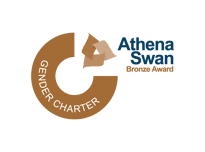
Athena Swan Bronze Award
Our Jewellery, Fashion and Textiles courses have been awarded the Athena Swan Bronze Award for our commitment to Equality, Diversity and Inclusion (EDI).
Athena SWAN is a quality charter mark framework and accreditation scheme established and managed by the UK Equality Challenge Unit in 2005 that recognises and celebrates good practices in higher education and research institutions towards the advancement of gender equality: representation, progression and success.
Employability
Enhancing employability skills
Employability is embedded throughout the course with relevant skills, such as Adobe InDesign and Photoshop, being taught as well as professional skills such as copywriting, creative narrative, trend forecasting and brand strategy.
Graduates from this course have gone on to work in roles that use these skills within the creative industries.
Placements
Students have taken internships within a wide range of fashion companies, such as fashion publications GQ, InStyle magazine, Grazia magazine and Suitcase magazine. Others have gained experience with Selfridges, ASOS and Topshop.
Graduate jobs
The type of industry job roles that graduates would move in to could include: art direction and creative direction, styling, photoshoot production, magazine production and editorial content, brand management and fashion graphics, social media content creation and management, trend forecasting, journalism and copywriting for brands and magazines, and fashion film creation.
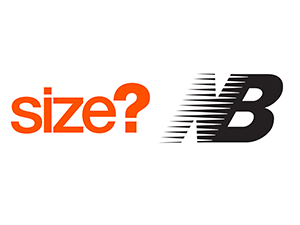
Size? and New Balance
Fashion Communication students teamed up with Size? and New Balance on a live brief, going on to pitch their brief to the two brands at the end of the event.
Facilities & Staff

Our Facilities
Fashion and Textiles courses are based at our Parkside Building, which is part of our multi-million pound City Centre Campus development in the heart of Birmingham's Eastside development.
Our staff
Louise Martin
Lecturer in Foundation Year Fashion and Textiles
Louise’s Masters in textile design established the foundation for her design journey. From this platform, Louise started to build a career as an interior designer, regional design manager, stylist, and as a lecturer in fashion and textiles. Louise now has over 10 years' teaching experience as a lecturer.
More about LouiseNatalie Martin
Course Leader in Foundation Year Fashion and Textiles
After graduating with BA (Hons) Fashion Design from BCU Natalie has worked with brands such as Joseph Turvey and Hades Knitwear as a freelance designer, production assistant and illustrator as well as working on show production for presentations at London Fashion Week Mens. Working hands-on with small, luxury brands has enabled her to gain a...
More about Natalie